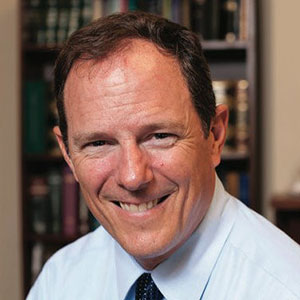
Feb. 19, 2020 – What’s your motivation for doing pro bono work?
Meet Jon Richards, an attorney with Ziino, Germanotta, Knoll & Christensen, Milwaukee, who graduated from the U.W. Law School and was a member of the Wisconsin State Assembly from 1999-2014.
While his current practice encompasses business law, nonprofit organizations, real estate law, consumer law, estate planning, Richards focuses his volunteer work on helping victims of sexual violence and human trafficking with Lotus Legal Clinic.
Learn more about Jon as he answers questions about his pro bono work.
Why Do You Do Pro Bono Work?
Doing pro bono work is an incredibly rewarding way to make a difference. So many people have their lives shaped by legal issues that are overwhelming to them. Very often, the people with the needs that most profoundly impact their day-to-day lives have the least ability to pay for the legal services that can help them.
As an attorney helping someone in a difficult financial situation, I can at least listen to their side of the story, clarify what is happening, stand up for them, work to get a result that is fair and makes sense to them – and carry the day when we can.
I can also work to change the law when a systemic wrong needs to be righted.
What Types of Pro Bono Work Do You Do?
I have been working with Lotus Legal Clinic to change state law to help survivors of human trafficking. Many people exploited through human trafficking are arrested for criminal offenses they committed because they were coerced by the person trafficking them. When a person has finally survived trafficking, the resulting criminal records create barriers that impact their independence, stability and safety.
 Jeff Brown, Harvard 1989, is manager of the State Bar Pro Bono Program, liaison to the Legal Assistance Committee, and staff for the Wisconsin Access to Justice Commission. He can be reached by email or by phone at (608) 250-6177.
Jeff Brown, Harvard 1989, is manager of the State Bar Pro Bono Program, liaison to the Legal Assistance Committee, and staff for the Wisconsin Access to Justice Commission. He can be reached by email or by phone at (608) 250-6177.
I am working with Lotus to broaden Wisconsin’s criminal record relief law for survivors of human trafficking to provide greater and more meaningful relief for survivors. Through Lotus, I have also helped individual survivors of human trafficking with their personal legal issues.
In addition to my work for Lotus, I have helped tenants who were being evicted, sometimes by a landlord who confiscated or destroyed their property, people who face discrimination in the workplace because of something in their past.
I have also represented people who have been arrested for a driving-related offense and who are facing the prospect of losing their license and a fine they will be unable to pay.
What’s Your Most Memorable Pro Bono Moment?
When I was able to help a young mother who was being evicted and being sued for damages by her landlord under questionable circumstances. I was able to get her and her baby into a new apartment and have the landlord’s attorney dismiss the eviction action and the claim for damages. That was a good day.
Did You Work 50 or More Pro Bono Hours in 2019? Certify Now for Pro Bono Honor Society
If you donated 50 or more hours of qualifying pro bono legal services to benefit low-income Wisconsin residents in 2019, you qualify as a member of the Wisconsin Pro Bono Honor Society – certify your service by Feb. 28.
The Pro Bono Honor Society, created by the Wisconsin Access to Justice Commission with support from the State Bar of Wisconsin, recognizes Wisconsin lawyers who volunteer at least 50 hours of their time annually to help expand access to justice for low-income Wisconsin residents.
Submit certifications using the online form on the Pro Bono Honor Society webpage.
Questions? Find out more in Feb. 5, 2020, InsideTrack.
